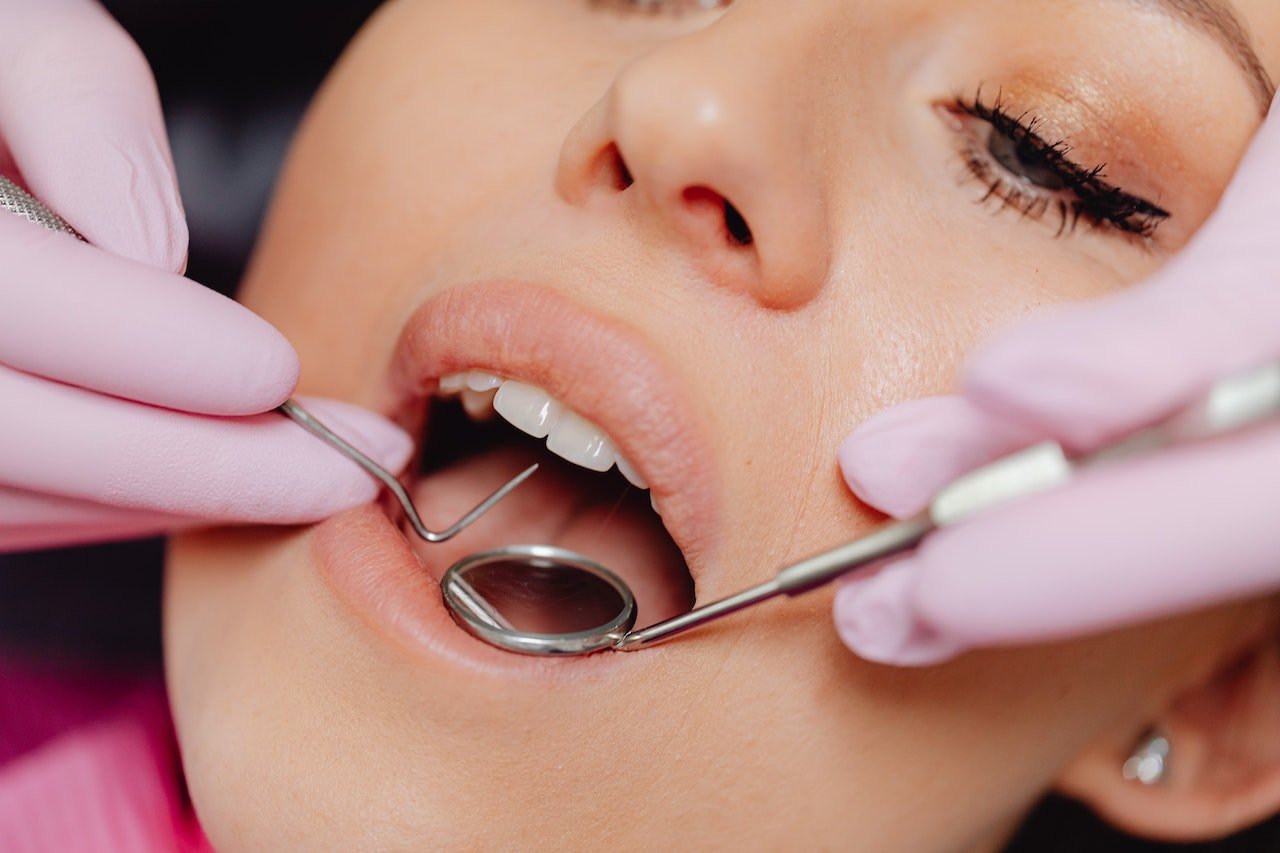Your teeth are strong. Nonetheless, they get damaged by decay or injuries, weakening them. To help make your teeth stronger, an Indianapolis dentist may suggest you add a dental crown to the tooth.
A dental crown protects teeth from further damage and strengthens them with proper treatment. That helps delay — or prevent — the need for a root canal. Read to learn how dental crowns help strengthen teeth.
What’s a Dental Crown?
It’s a restoration that covers and strengthens the tooth structure. It can be of porcelain, metal, or alloys. It’s cemented onto natural teeth to restore function, strength, and aesthetics.
It can be an anchor for partials or bridges. Dental crowns protect damaged teeth from fracturing or breaking due to chewing forces.
A dental crown’s purpose is to support large fillings and other restorations that cannot be placed on the tooth itself without causing excessive damage. Dental crowns can also make your teeth appear straighter, whiter, and more uniform than other restorations, such as veneers or bonding materials, such as composite resin.
Dental crowns fit over your existing tooth and provide a secure foundation for a healthy, bright new smile. You opt for dental crowns:
- To replace a damaged tooth or to repair teeth with deep cavities or cracks that prevent normal chewing and speaking.
- To help reduce the appearance of discolored teeth caused by gum disease or injury.
- To strengthen weak teeth weakened by decay, trauma, or repeated dental procedures (such as orthodontics).
Dental Crown Types
They are of porcelain fused to metal, metal all-resin, or all-ceramic.
- Porcelain-fused-to-metal dental crowns are made by fusing porcelain into a metal base. The metal base can be silver, gold, or nickel. Porcelain-fused-to-metal dental crowns are used on teeth next to other teeth or need to be restored to their original shape.
- Resin dental crowns are not as durable and require regular replacement after about ten years. Resin dental crowns are less expensive than porcelain fused to metal and all-ceramic dental crowns.
- All ceramic crowns have a natural color. However, they can crack if knocked against something too hard or get too hot or cold.
- Metal alloys are strong, durable materials that resist wear and tear, meaning your teeth will last longer with fewer replacements. However, metal alloys are more costly; they range from $650 to $1300.
Holds them Together
Dental crowns help strengthen teeth by holding them together. It cannot be easy to chew food or even smile if you have a tooth that is not properly aligned. A dental crown will help stabilize the tooth and bring it back into alignment with the rest of your teeth so that you can eat comfortably and smile confidently.
Builds Worn Tooth
If a tooth has become worn down, it can be difficult for your dentist to fill it with a traditional filling. The tooth is so thin that there isn’t enough healthy enamel to hold a filling in place.
A dental crown builds up the tooth’s surface and makes it strong enough to hold a filling. When a dental crown gets placed on your tooth, it will look very natural because it matches the color of your teeth.
Covers Cavity
A dental crown covers a large filling or a large cavity. Dental crowns help protect your teeth from additional damage and strengthen them so you can keep chewing on them without worrying about breaking them. A dental crown also protects your gum tissue from the sharp edges of your teeth or cavities.
Surrounds Entire Tooth
The crown surrounds the entire tooth and acts as a support structure for both its root and enamel. When your teeth are healthy, they are usually able to withstand some wear and tear without requiring any special treatment—but when they get damaged beyond repair, there isn’t much left for them to hold onto! Surrounding the whole tooth with a dental crown ensures it stays strong enough to withstand wear and tear.
Restores Tooth Function
The tooth close to the gum line is a pulp. The pulp contains nerves, blood vessels, and connective tissue that helps keep your teeth alive. If this part gets damaged due to an accident or other reason, you must replace it with an artificial part. Dental crowns help replace these damaged parts and thus restore the normal functions of your teeth.
Dental Crowns help patients restore the strength of their teeth that they may have lost due to cavities, tooth decay, gum disease, or worn teeth. They also serve as support during dental implant placement and the area for placement preparation. Losing one tooth could lead to additional damage to surrounding teeth and gum tissue without restoring a crown or cap. Since they support an existing tooth like a cast supports a broken bone, they can significantly improve the appearance of a smile.
